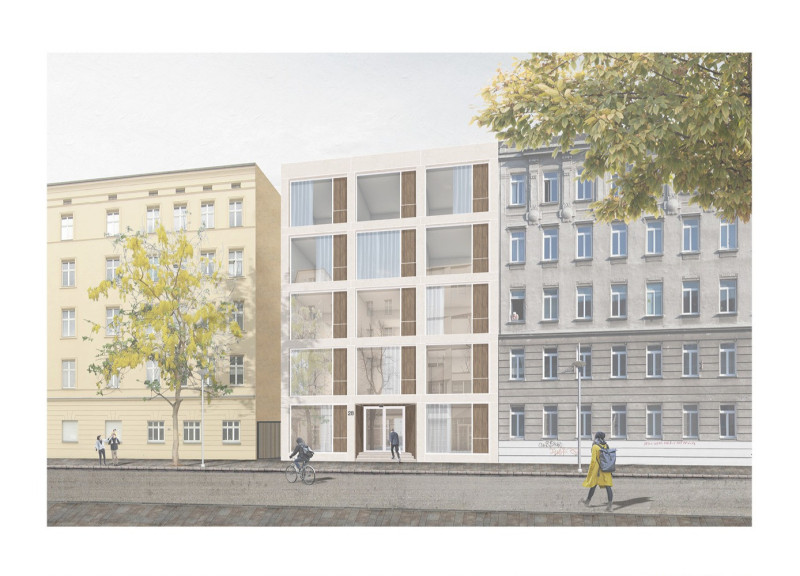5 key facts about this project
The URBAN ‘MODULator’ is a modular housing project situated in Berlin, targeting the need for affordable living spaces in urban settings. This initiative embodies a design that prioritizes ecological sustainability, flexibility, and community integration. By utilizing contemporary modular construction techniques, the project aims to respond adeptly to the challenges of urban density while maintaining an efficient and practical approach to housing.
The design implements a modular system that allows for various configurations of living units. Each module measures approximately 9.6 m², enabling a range of living arrangements from compact studio apartments to larger multi-bedroom homes. This configuration not only provides an economic advantage but also facilitates straightforward construction and the potential for easy relocation or reconfiguration in response to changing urban needs.
Innovative Material Choices Enhance Sustainability
One key aspect that delineates the URBAN ‘MODULator’ from other housing projects is its commitment to sustainability through material selection. The primary materials utilized in the construction include Cross-Laminated Timber (CLT), concrete, and glass. The use of CLT contributes to a reduced carbon footprint while providing the necessary structural integrity. Concrete, strategically used in conjunction with timber, enhances durability and fire resistance, securing the longevity of the structures. Glass elements in the façades further bolster the project's environmental objectives by maximizing natural light, reducing the need for artificial lighting.
Modular Flexibility and Community Integration
Another distinct characteristic of the URBAN ‘MODULator’ is its emphasis on flexibility and community. The modular design enables residents to adapt their living spaces to their specific needs, whether they require a workspace, additional storage, or communal areas. This adaptability is essential in urban areas where space optimization is crucial. The arrangement of modules can foster a sense of community, allowing for shared public spaces that encourage social interactions among residents. This community-oriented approach serves as a vital component of the overall design, contributing to a coexistence between individual and collective living.
The URBAN ‘MODULator’ presents a compelling model for affordable housing that prioritizes environmental sustainability, adaptability, and community. For authoritative insights into its architectural details, including architectural plans, sections, designs, and ideas, we invite you to explore the project presentation for further information.



















































